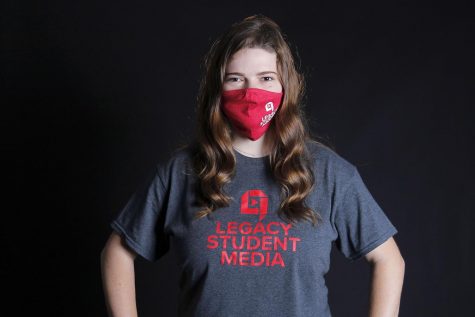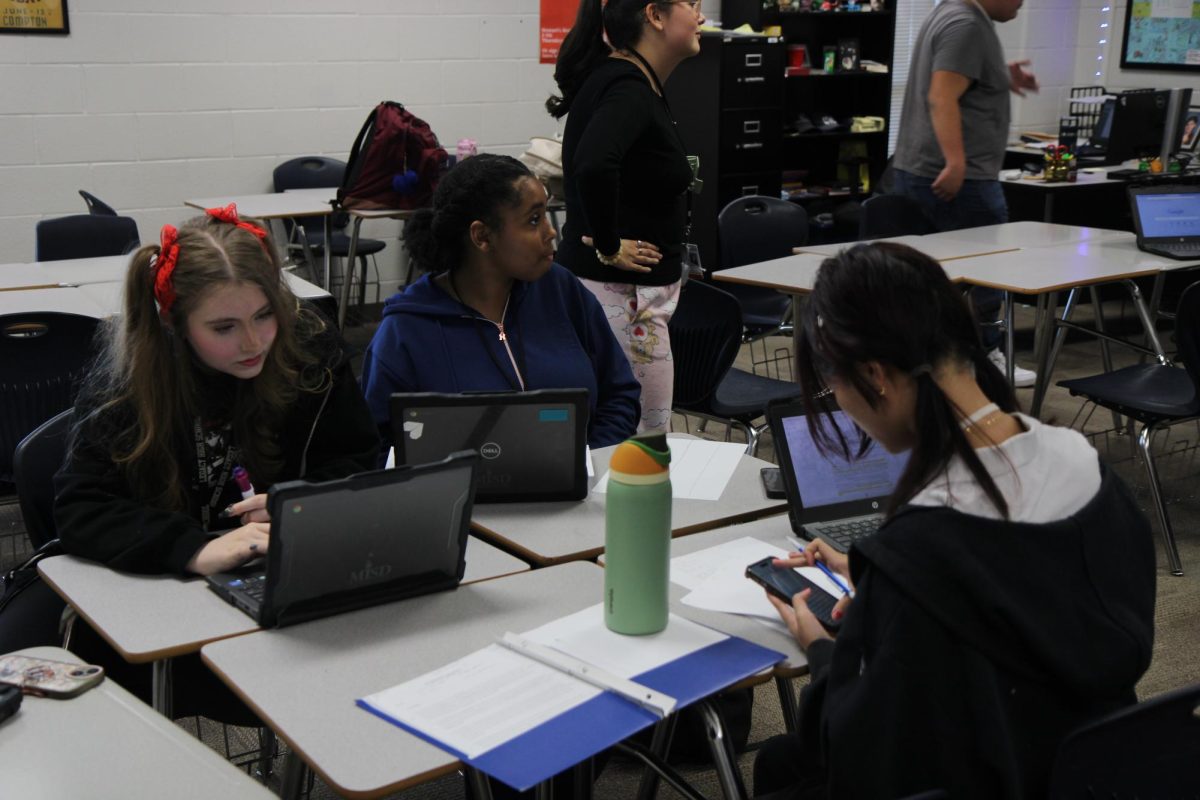The debate team began their season with high hopes as 12 students trickled into the school and focused not on the hour-long bus ride ahead of them, but instead, the set up of multiple monitors and laptops to ensure their best success in a virtual tournament. In a year of firsts, the team faced a long day ahead of them as they settled into their room for the day and prepared for their speeches in the new online tournament space created in response to the social distance mandate.
As school events and team competitions got canceled, the debate team saw a loss in numerous competitions and tournaments, including the UIL district meet in spring 2020. The fall season faces many unknown challenges for senior Katie Stendebach and the rest of the team as they began an online tournament platform.
“I was very nervous about the new platform when I first heard about it,” Stendebach said. “Many of my former team members [who have been judging] told me that online tournaments had a tendency to crash, lag, or just not work altogether. This not only made me stressed about the experience I’ll have of the last year on the team but also what kind of perspective it will give the incoming debaters.”
As a captain on the team, Stendebach taught students the process of a debate round as well as prepared them for the online platform and how to be efficient speakers through a video call. Some speech event competitors, such as Student Congress member, senior Sebastian Zayas-Bazan, faced the challenge of presentation techniques compromised through the online format.
“It was very difficult to give a speech over a call,” Zayas-Bazan said. “Before, I only had to worry about competing for a prize. Now, I’m not only competing for a prize, but also for the attention of my competitors and the judge.”
While the tournament focused on efficient ways to allow everyone a chance to compete and the online format did not take away anyone’s chance to speak, the new format came with outside forces competing against the students, such as distractions around other competitors and technological issues on either end.
“It was a bit of a learning curve,” Stendebach said. “I definitely enjoy in-person debates more because it gives me a chance to connect with opponents and have the adrenaline of being at a competition.”
Although the debate did not change regardless of location, the new setting for the competition offered students a sense of unease as they learned how to compete from a remote location. The competitors noticed strong differences in their ability to convey their speeches over a call and give the same effect to judges.
“I felt as if my performance was worse in the virtual tournament than in a real tournament. A big part of speaking is, well, speaking. Which often involves speaking to someone and I missed that feeling,” Zayas-Bazan said. “Having an audience, physically present, reacting to my oration makes for an indescribable feeling of awareness and exhilaration. I guess it’s that human component which is really key in the comparison.”
















